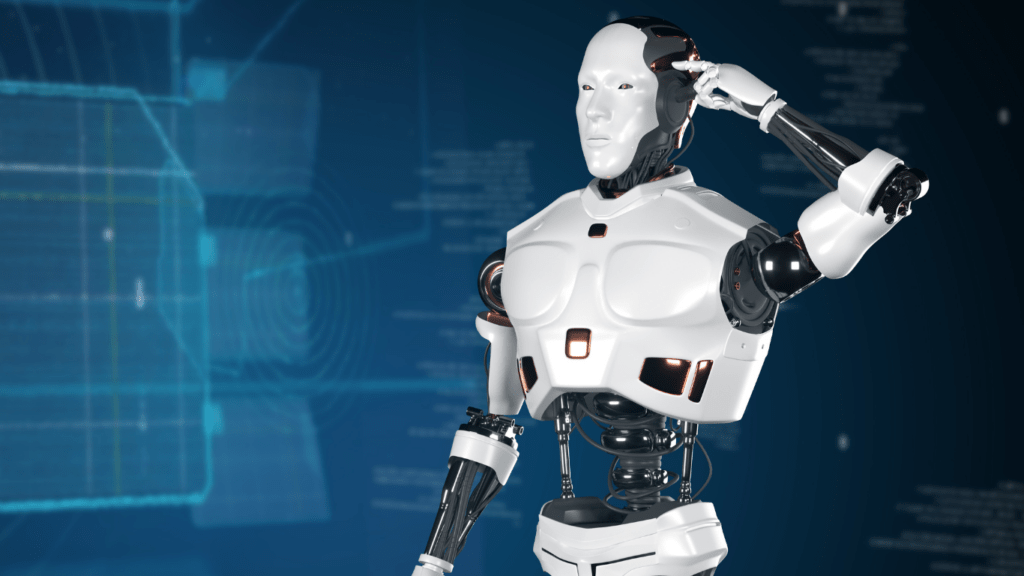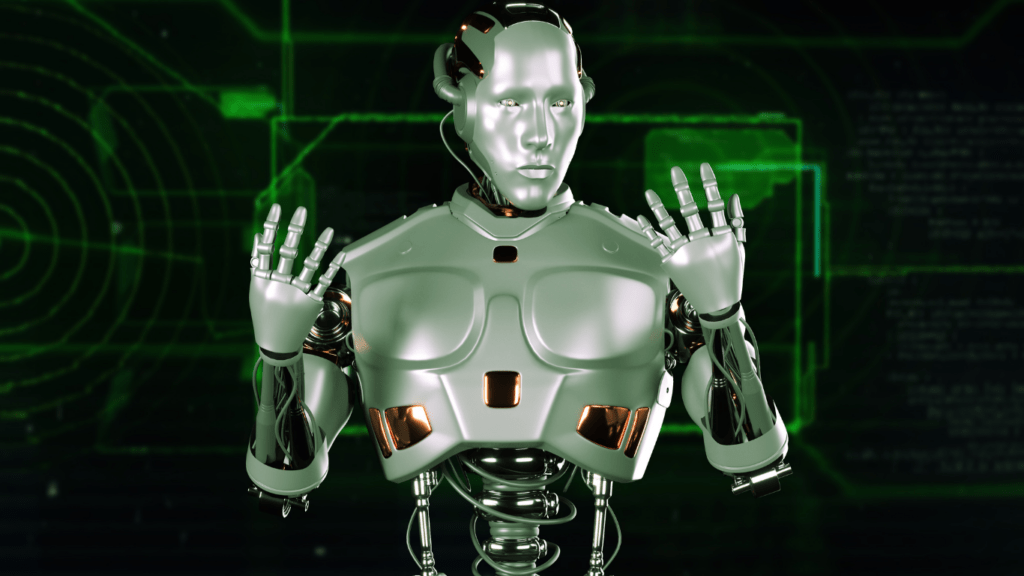Understanding AI: A Brief Overview
Artificial Intelligence (AI) encompasses the development of computer systems capable of performing tasks typically requiring human intelligence. These tasks include visual perception, speech recognition, decision-making, and language translation.
Historical Background
AI’s roots date back to the 1950s, with significant progress in the decades that followed. Innovations like neural networks and machine learning algorithms played pivotal roles.
Key Technologies in AI
- Machine Learning (ML): Machine learning involves algorithms that enable systems to learn and improve from experience without explicit programming. Examples include image recognition and recommendation systems.
- Natural Language Processing (NLP): NLP allows computers to understand, interpret, and generate human language. Examples are chatbots and sentiment analysis tools.
- Robotics: Robotics integrates AI to perform human-like tasks, such as assembly line work and autonomous vehicles.
- Computer Vision: Computer vision systems interpret and make decisions based on visual data, used in applications like facial recognition and quality inspection in manufacturing.
Applications in Modern Business
Businesses leverage AI to enhance operational efficiency and decision-making. AI models analyze large datasets to generate actionable insights, automate repetitive tasks, and personalize customer interactions.
Benefits of AI in Business
- Cost Reduction: Automating routine tasks reduces labor costs.
- Improved Decision-Making: AI provides precise data analysis, aiding better business decisions.
- Enhanced Customer Experience: AI personalizes customer service interactions, improving satisfaction and loyalty.
Challenges and Considerations
Implementing AI in business presents challenges like data privacy concerns, the need for skilled personnel, and potential bias in AI models. However, companies prepared to address these challenges can significantly benefit from AI integration.
The Integration of AI in Business
AI’s integration into business reshapes industries, offering substantial benefits across multiple sectors. From automation to predictive analytics, companies gain significant advantages.
Sectors Embracing AI
- Healthcare: Hospitals and clinics use AI to interpret medical images, predict patient outcomes, and personalize treatments. IBM’s Watson assists in diagnosing diseases by analyzing complex medical data.
- Finance: Banks and financial institutions deploy AI for fraud detection, algorithmic trading, and customer service automation. JPMorgan’s COiN platform reviews legal documents in seconds.
- Retail: Retailers leverage AI for inventory management, personalized marketing, and customer sentiment analysis. Amazon’s recommendation engine boosts sales by suggesting products based on user behavior.
- Manufacturing: AI systems optimize production processes, predict equipment failures, and ensure quality control. Siemens uses AI for predictive maintenance, reducing downtime and maintenance costs.
- Transportation: AI enhances route optimization, autonomous driving, and fleet management. Tesla’s Autopilot system employs AI to assist with driving tasks and improve safety.
- Chatbots: Businesses use AI-driven chatbots for customer support, handling inquiries and transactions 24/7. Examples include Zendesk’s Answer Bot and Drift’s conversational AI.
- Predictive Analytics: Companies apply AI to forecast trends, customer behavior, and sales. Netflix uses predictive analytics to recommend content, increasing viewer engagement.
- Natural Language Processing (NLP): NLP enables systems to understand and generate human language, improving virtual assistants and document analysis. Google’s BERT model enhances search engine results.
- Robotic Process Automation (RPA): Businesses implement RPA to automate repetitive tasks such as data entry and invoice processing. UiPath’s RPA solutions streamline business workflows.
- Computer Vision: AI-driven computer vision analyzes visual data for various applications, from facial recognition to quality inspection. Facebook uses it for image tagging and content moderation.
AI continues revolutionizing how businesses operate, with diverse applications and sector-specific implementations driving growth and innovation.
Benefits of AI in Modern Business

Artificial Intelligence (AI) brings numerous advantages to contemporary business operations. These benefits range from operational efficiency to customer satisfaction and strategic decision-making.
Improved Efficiency
AI automates repetitive tasks that consume valuable human resources. In my experience helping businesses, AI tools streamline processes like data entry, inventory management, and workflow optimization. For example, Robotic Process Automation (RPA) can handle high-volume, rule-based tasks efficiently, freeing employees to focus on more strategic activities.
Enhanced Customer Experience
By leveraging AI, businesses can provide personalized experiences for their customers. I’ve seen companies implement AI-driven chatbots that handle customer inquiries 24/7, enhancing responsiveness and satisfaction. Additionally, recommendation engines, like those used by Amazon, analyze customer behavior to offer tailored suggestions, boosting engagement and sales.
Data-Driven Decision Making
AI transforms raw data into valuable insights, assisting businesses in making informed decisions. Through advanced analytics, AI identifies patterns, predicts trends, and gauges market shifts, enabling proactive strategy formulation. For instance, predictive analytics helps retailers forecast demand, ensuring optimal inventory levels and minimizing stockouts.
Challenges and Risks of AI
Implementing AI in modern business brings about significant challenges and risks that must be managed effectively.
Implementation Costs
High upfront costs associated with AI integration can be a barrier for many businesses. Developing, training, and maintaining AI systems require substantial investment in hardware, software, and skilled personnel. For example, training deep learning models often needs powerful GPUs, which are expensive and power-intensive.
Security Concerns
AI systems can become targets for cyberattacks due to their reliance on large datasets and complex algorithms. Vulnerabilities in AI models can be exploited, potentially leading to data breaches and unauthorized access. Notably, adversarial attacks, where input data is maliciously designed to deceive AI systems, are a significant concern.
Ethical Considerations
Ethical issues in AI implementation include potential biases in decision-making processes and lack of transparency in AI algorithms. Bias can result from unrepresentative training data, leading to unfair or discriminatory outcomes. For instance, biased hiring algorithms may inadvertently favor certain demographics, highlighting the need for diverse training datasets and rigorous testing strategies.
Future Trends in AI and Business
AI continues to evolve, paving the way for groundbreaking changes in business. My insights reveal key trends that’ll shape the industries in the years to come.
Emerging Technologies
New AI technologies are pushing boundaries. Quantum computing will dramatically amplify AI capabilities by processing complex datasets at unprecedented speeds. For instance, Grover’s algorithm in quantum computing can enhance search problem resolutions significantly faster than classical computers.
Edge computing integrates AI operations closer to data sources, minimizing latency issues by processing data locally rather than in centralized cloud servers. Use cases, like real-time analytics in manufacturing, demonstrate its potential to improve efficiency.
Autonomous systems, including self-driving vehicles and drones, rely on AI and will revolutionize logistics and transportation. These systems promise safer, more efficient travel, reducing human error and operational costs.
Predicted Impact on Industries
AI’s impact across industries has dramatic implications. In healthcare, predictive analytics will enable early disease detection, while AI-powered robotic surgeons could conduct intricate operations with high precision and minimal invasiveness. An example includes IBM’s Watson assisting in diagnosing diseases through vast data analysis.
Finance will see AI-driven fraud detection systems that process transactions in real-time, identifying anomalies more accurately than manual reviews. AI-enabled robo-advisors will also offer tailored financial advice, improving investment strategies.
Retail will leverage AI to predict consumer behavior, optimize inventory, and personalize shopping experiences. Amazon’s recommendation engine exemplifies how predictive algorithms drive sales by suggesting products based on user data.
Manufacturing will benefit from AI through predictive maintenance, reducing downtime and extending equipment life. Industrial robots with AI capabilities will enhance production efficiency and ensure consistent product quality.
In transportation, autonomous vehicles will transform logistics by enabling 24/7 operations without driver fatigue issues. AI-powered traffic management systems will improve urban mobility by reducing congestion through real-time adjustments to traffic flow.
Anticipate these trends as industries continue embracing AI technologies, driving substantial shifts in operational paradigms and delivering transformative business outcomes.



